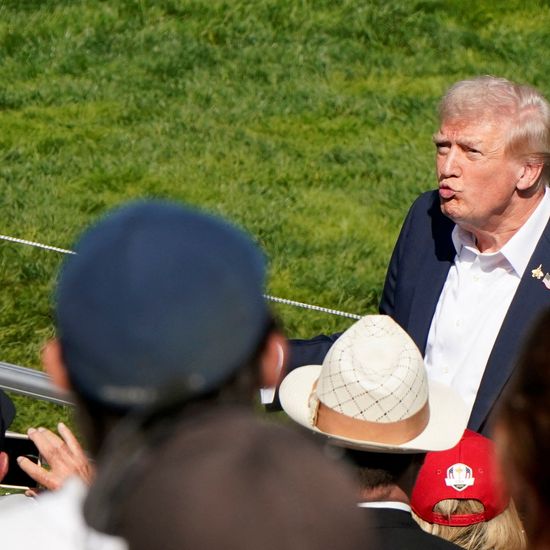Copyright independent

Asked whether pharmaceutical tariffs apply to trading partners such as the European Union and Japan that already have trade deals, the official said the Trump administration would honour the 15pc cap as part of those pacts. It came after Mr Trump announced a raft of import taxes, including 100pc on branded pharmaceutical drugs, to start on October 1. In a statement this evening, Tánaiste Simon Harris welcomed the confirmation of the exemption from the new tariffs, which could have severely hit Ireland’s multinational pharma manufacturing sector. “I welcome confirmation from White House officials this evening that the new tariffs outlined by President Trump in relation to pharma overnight will not apply to the EU, including Ireland, as a result of the EU-US framework agreement,” Mr Harris said. “This is further proof of the benefit of having a negotiated trade agreement and the benefits of the very intensive work that we in Ireland and at a European Union level undertook over many months with the US administration to ensure this trade deal is in place. “I intend to continue to intensively engage both with the EU and with the US administration, as I have been in recent days in New York and Washington DC, to seek further progress on the removal of trade barriers between the EU and the US in the time ahead.” Mr Trump announced a raft of import taxes, including 100pc on branded pharmaceutical drugs, to start on October 1. Other measures will include 50pc on kitchen cabinets and bathroom vanities, 30pc on upholstered furniture and 25pc on heavy trucks. Mr Trump’s devotion to tariffs did not end with the trade frameworks and import taxes that were launched in August The posts on his social media site showed that Mr Trump’s devotion to tariffs did not end with the trade frameworks and import taxes that were launched in August, a reflection of the president’s confidence that taxes will help to reduce the US government’s budget deficit while increasing domestic manufacturing. The additional tariffs risk intensifying inflation that is already elevated, as well as slowing economic growth, as employers getting used to Mr Trump’s previous import taxes grapple with new levels of uncertainty. Britain has struck a trade deal with the US but it does not yet include pharma, leaving it open to the 100pc rate. Mr Trump said on Truth Social that the pharmaceutical tariffs would not apply to companies that are building manufacturing plants in the United States, which he defined as either “breaking ground” or being “under construction”. It was unclear how the tariffs would apply to companies that already have factories in the US. In August, Mr Trump imposed a 15pc tariff on most pharmaceutical exports from the European Union. Ireland is one of the biggest exporters of pharmaceutical products to the US from the EU, accounting for €33bn of the €120bn in pharmaceutical exports to the US last year. This announcement now causes further uncertainty for Ireland’s pharmaceutical industry. Writing this morning, Tánaiste Simon Harris said: “I want to stress, however, that the EU and US Joint Statement issued on August 21 was absolutely clear. “Any new tariffs announced by the US on pharmaceuticals would be capped at 15pc for products exported by the EU.” The Fine Gael leader and trade minister stressed: “This remains the case and underlines again the value of the agreement reached last month.” The Tánaiste was returning home after a series of meetings in both New York and Washington, including a meeting with US secretary of commerce, Howard Lutnick, where it is understood there was no hint of a new 100pc tariff. In 2024, America imported nearly $233bn in pharmaceutical and medicinal products, according to the Census Bureau. The prospect of prices doubling for some medicines could send shockwaves to voters as health care expenses, as well as the costs of Medicare and Medicaid, potentially increase. Mr Trump said that foreign manufacturers of furniture and cabinets were flooding the United States with their products, and that tariffs must be applied “for National Security and other reasons”. The new tariffs on cabinets could further increase the costs for homebuilders at a time when many people seeking to buy a house feel priced out by the mix of housing shortages and high mortgage rates. He said that foreign-made heavy trucks and parts are hurting domestic producers. “Large truck company manufacturers such as Peterbilt, Kenworth, Freightliner, Mack Trucks and others will be protected from the onslaught of outside interruptions,” the president posted. Today's News in 90 Seconds - September 26th Mr Trump has long maintained that tariffs are the key to forcing companies to invest more in domestic factories. He has dismissed fears that importers would simply pass along much of the cost of the taxes to consumers and businesses in the form of higher prices. The president continues to claim that inflation is no longer a challenge for the US economy, despite evidence to the contrary. The consumer price index has increased 2.9pc over the past 12 months, up from an annual pace of 2.3pc in April, when Mr Trump first launched a sweeping set of import taxes. Nor is there evidence that the tariffs are creating factory jobs or more construction of manufacturing facilities. Since April, the Bureau of Labour Statistics has reported that manufacturers cut 42,000 jobs and builders have downsized by 8,000. “There’s no inflation,” Mr Trump told reporters on Thursday. “We’re having unbelievable success.”



